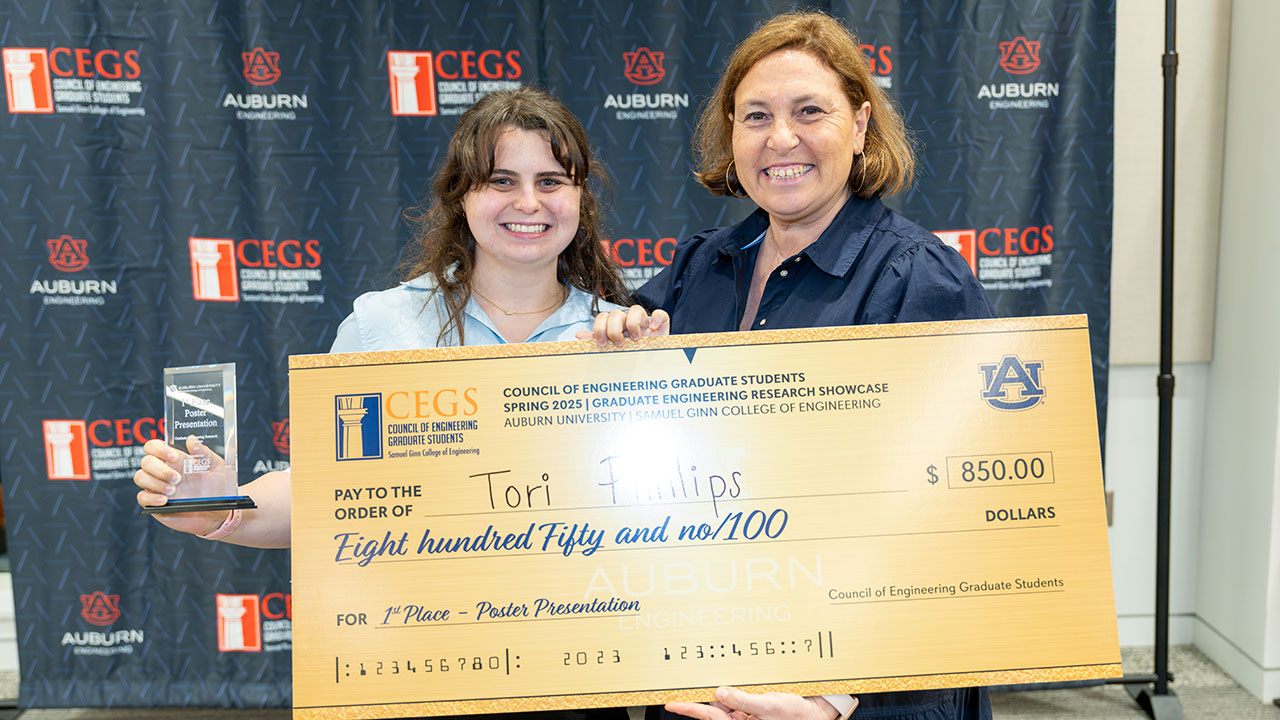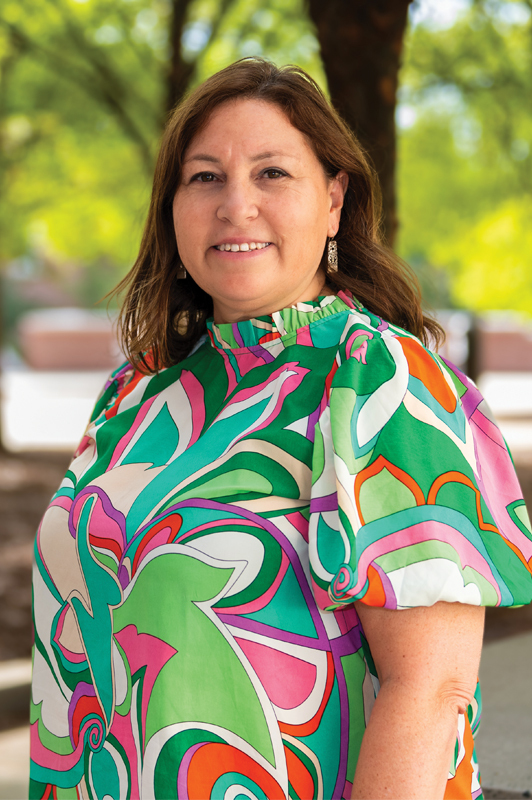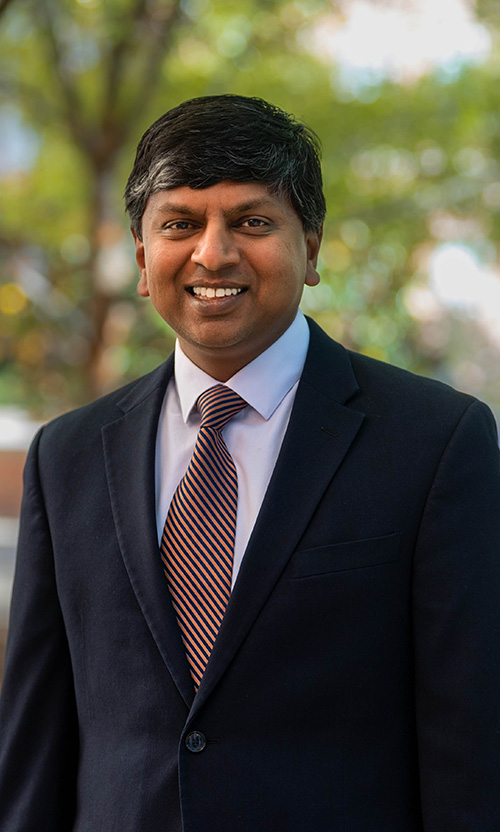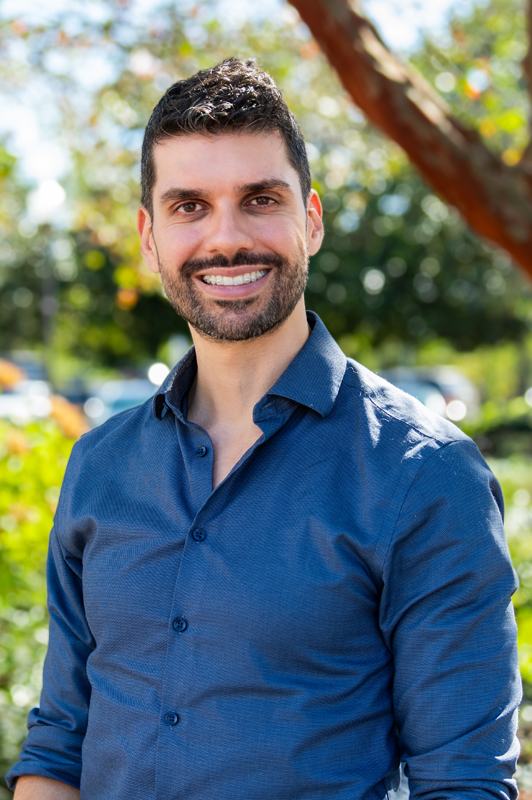Chemical engineering student wins Graduate Engineering Research Showcase with study on hydraulic redistribution
Published: Apr 8, 2025 10:25 AM
By Joe McAdory
Could a simple farming technique help crops survive droughts and cities better manage floods?
Tori Phillips, a graduate student in chemical engineering, is exploring that question through a creative combination of transparent soil experiments and fluid mechanics in Auburn University’s Nature-Inspired Fluids & Elasticity Lab, led by Jean-François Louf, an assistant professor in the Department of Chemical Engineering.
“We aim to assist farmers by studying hydraulic redistribution practices already in use,” Phillips said. “Farmers sometimes pair shallow-rooted crops with native shrubs that have long roots. These deeper roots can draw water from lower soil layers and release it near the surface, making moisture accessible to neighboring crops.”
Her work also has implications for urban planning.
“By integrating deep-rooted and shallow-rooted plants into green infrastructure, we can potentially guide rainwater deeper into the soil, reducing surface flooding and promoting more even water distribution,” she said.
Phillips presented this research in her award-winning poster, “Modeling Hydraulic Redistribution Using Transparent Soil,” at the 12th Graduate Engineering Research Showcase, held April 3 in the Brown-Kopel Center. She earned first place and a $850 prize, awarded by a panel of industry and faculty judges.
“Tori is a fantastic student who is very generous with her time and energy in the lab,” said Louf, a recent National Science Foundation CAREER Award recipient. “Her curiosity, persistence, and collaborative spirit make her a joy to mentor. The recognition she received is a testament to her talent and the important interdisciplinary questions she’s pursuing.”
More than 150 graduate students participated in the Showcase, presented annually by the college’s Council of Engineering Graduate Students.
“Graduate students from diverse engineering disciplines coming together to present their research is a vital part of the academic process,” said Maria Auad, associate dean for graduate studies and faculty development. “This collaboration not only fosters innovation and interdisciplinary learning but also underscores Auburn's leadership among graduate research among peer institutions. Their future is bright, and we are proud to support their journey towards groundbreaking discoveries."
Rounding out the remainder of the Showcase winners were:
- Justus Ilemobayo, biosystems engineering, second place overall ($750), advised by Assistant Professor John Linhoss
- Karan Sah, aerospace engineering, third place overall ($650), advised by Associate Professor Russell Mailen
- Faraz Ahmad, biosystems engineering, best first-year graduate student presentation ($500), advised by Assistant Professor Tanzeel Rehman
- Glogina Boakye, chemical engineering, honorable mention ($350), advised by Assistant Professor Cassandra Porter
- Dale Hartman, biosystems engineering, honorable mention ($350), advised by Professor Sushi Adhikari
- Hilda Obeng Boateng, civil and environmental engineering, honorable mention ($350), advised by National Center for Asphalt Technology Assistant Director Fan Yin
- Samantha Mariano, civil and environmental engineering, honorable mention ($350) advised by Associate Professor Lauren Beckingham
- Justin Harvell, chemical engineering, honorable mention ($350), advised by Professor Elizabeth Lipke
- Rajan Bhandari, aerospace engineering department winner ($250), advised by Associate Professor Imon Chakraborty
- Ayden Kemp, biosystems engineering department winner ($250), advised by Professor Sushil Adhikari
- Harrish Kumar Senthil Kumar, chemical engineering department winner ($250), advised by Associate Professor Bryan Beckingham
- Nsong Ernest Asiedu, civil and environmental engineering department winner ($250), advised by Professor Huaguo Zhou
- Pemsith Mendis, computer science and software engineering department winner ($250), advised by Assistant Professor Akond Rahman
- Harshil Goyal, electrical and computer engineering department winner ($250), advised by Professor Mark L. Adams
- Savannah Maples, industrial and systems engineering department winner ($250), advised by Assistant Professor Yadrianna Acosta-Sojo
- Valentina Nesterova, materials engineering department winner ($250), advised by Assistant Professor Konstantin Klyukin
- Mikyle Paul, mechanical engineering department winner ($250), advised by Professor Nima Shamsaei
- Jesus Granero Garcia, polymer and fiber engineering winner ($250), advised by Associate Dean for Graduate Studies and Faculty Development Maria Auad
Allan David, associate dean for research, reminded participants at the event’s awards banquet that they are not only amazing engineers, but also “problem-solvers.”
“You are the industry’s future leaders,” David said. “But as leaders, you have a responsibility. Whether we are building bridges or walls, it’s not just to advance technology — it’s to advance humanity. That’s what we do as engineers — improve the quality of lives for others. As you move forward in your careers, keep this in mind… be reliable, be someone that others can trust, pursue growth, keep learning and help others succeed.”
Phillips gets the message.
She uses a clear, soil-like medium that allows for direct visualization of root morphology while preserving natural root architecture. She quantifies how water moves through the system using Poiseuille’s law, which models fluid flow through plant roots. “By tracking mass changes over time in both wet and dry regions of the soil, I can evaluate how water redistributes across the system,” she said.
Poiseuille’s law describes how a fluid flows through a long, narrow pipe or porous material such as plant roots, and how the flow is impacted by pressure differences at each end, the length and radius of the pipe and viscosity of the fluid.
Phillips reflected on how Auburn has shaped her development as an engineer and researcher.
“Auburn Engineering has helped me learn to think differently,” Phillips said. “Often, students go through classes and follow the routine. But being at Auburn for graduate school, I’ve learned to be independent in my problem solving and to come at it with creative solutions — not just by the book. It’s important to find a creative solution because not everything is going to go the way you planned.”
Media Contact: , jem0040@auburn.edu, 334.844.3447
Graduate Engineering Research Showcase winner Tori Phillips, left, with Maria Auad, the college's associate dean for graduate studies and faculty development.




